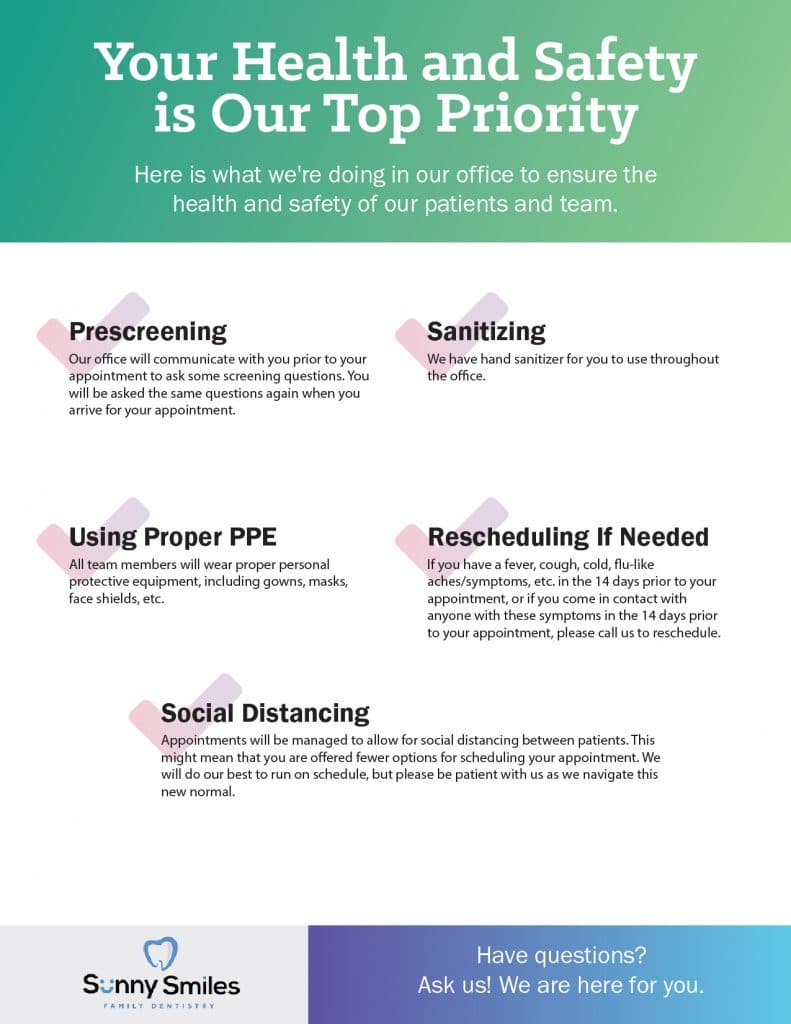
Most people have experienced bleeding gums at some point. But they may not be aware that it is one of the first signs of a more serious gingival infection. In today’s blog, Sunny Smiles Family Dentistry discusses the signs of gingivitis and how to proactively treat it and prevent more severe forms of gum disease.
Signs and Symptoms of Gingivitis
Gingivitis typically manifests through various symptoms. Here are some common indicators that you may have gingivitis:
- Red and swollen gums: Gingivitis often causes your gums to become red, inflamed, and overly sensitive. Healthy gums should be pink and firm.
- Bleeding gums: You may notice bleeding while brushing your teeth or flossing. This is a common indication of gum inflammation and should not be ignored.
- Bad breath: Gingivitis can lead to persistent bad breath, also known as halitosis. This occurs due to the accumulation of bacteria and plaque in the mouth.
- Receding gumline: If you notice that your teeth appear longer or if your gumline appears to be receding, it could be a sign of gingivitis. This can expose the sensitive roots of your teeth, causing discomfort.
- Formation of pockets: In advanced stages of gingivitis, small pockets can form between the gums and teeth, leading to a buildup of bacteria and food particles.
Consequences of Untreated Gingivitis
If left untreated, gingivitis can progress to periodontitis, where the infection spreads deeper into the gums and bones supporting the teeth. This can cause tooth decay, tooth loss, and even jawbone deterioration. As the disease advances, the inflammation in your gums can worsen, leading to more discomfort, pain, and sensitivity. It is important to understand that there is evidence linking gum disease to systemic health issues, including diabetes, heart disease, respiratory problems, and complications during pregnancy. Treating gingivitis can help reduce the risk of these potential health complications.
How Do We Treat It?
The good news is that gingivitis can be treated and even reversed through proper oral care. Excellent hygiene should be practiced, and your dental team can give you techniques and products helpful to your situation. Many patients neglect to floss daily to remove plaque and food particles from between their teeth and along the gumline. This is where the disease often thrives in patients who have good brushing techniques.
promote gum health and strengthen your immune system.
If tartar is present, gingivitis may continue to persist even with the best hygiene. One of the most important ways to treat gingivitis is to stick to a consistent six-month cleaning schedule. Our thorough hygienists will clean hard-to-reach areas and use ultrasonic devices to disrupt harmful bacteria and tartar.
Schedule A Cleaning Today!
Gingivitis is a common gum condition that, if left untreated, can lead to severe consequences. By recognizing the signs and symptoms, understanding the potential risks of not addressing it, and adopting proper oral hygiene practices, you can effectively treat and prevent it. To find out more about periodontal disease and how we help you fight it, give us a call at your local Sunny Smiles location on N Zaragoza Rd in El Paso, TX at (915)849-9000.




